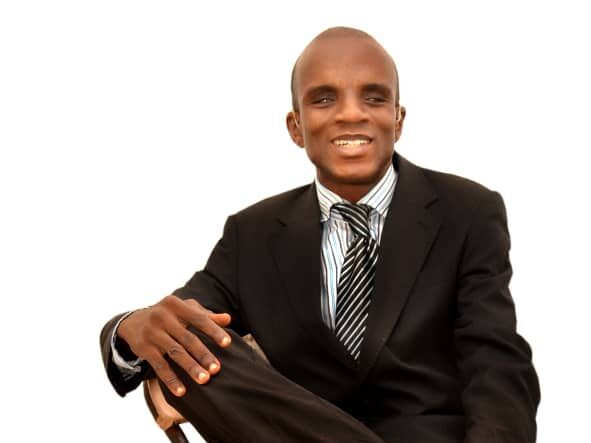
News
‘Success and Failure Are Born in the Same Cradle’
Play audio version
LALIF Executive Director Solomon Okelola Reflects on Living with DeafBlindness
October 31, 2021
LAGOS, Nigeria — Growing up hard of hearing and visually impaired, Solomon Okelola could not see what his teachers wrote on the board unless he stood up to get a closer look. Of course, this was difficult and time-consuming – walking up to the chalkboard, checking for the particular line of writing he was reading, returning to his notebook to write, then back to the chalkboard all over again. Plus, it was an inconvenience for his classmates, as he usually obstructed their view.
Lacking hearing aids back then, Okelola also couldn’t hear his teachers very well. “Anyone who wanted to talk to me had to stand close to me and talk right into my ears or raise his/her voice for me to hear,” he says. Of course, the teachers couldn’t stand beside a single student or raise their voices all the time, so Okelola grew up with reading as his main tutor. “I loved to source for more information and knowledge,” he says.
Today, Okelola is the executive director of Lionheart Ability Leaders International Foundation (LALIF), a non-governmental organization in Nigeria for people with disabilities. In this role, he has helped organize awareness campaigns to educate Nigerians about his type of disability. Okelola notes that people who are DeafBlind can face even more challenges communicating than those who are Deaf or blind. They can feel isolated, which is how he felt growing up. “Whenever there were more than two people around me, I found I was mostly on my own, with my own thoughts,” he says. Eventually, though, Okelola grew to appreciate his solitude, as it gave him an opportunity to observe and reflect upon life, people, their problems, and the ways they react to their problems. Sometimes, he would go somewhere by himself to reflect and ponder life.
It was from this habit that Solomon discovered his writing and advocacy skills. His reflections, decisions, counter-questions, and final resolutions began to influence his daily habits, his endeavors, and his responses to people and situations. He says, “They [his reflections and meditations] are the main reason why I have learnt, and I tell people the following:
- I don’t believe man is a product of his environment. Man is a product of his experiences and his reactions or responses to those experiences. You can always choose to be who and what you want to be.
- Only you can mold yourself, only you can destroy yourself and your chance to succeed in life.
- It matters little what goes on around you or where you find yourself. It is how you decide to take it all that matters.
- Success and failure are born in the same cradle – in your mind. You can conceive whichever you desire.
- It’s all about you to be the best you can!”
With a master’s degree in special education and rehabilitation science from the University of Ibadan, Oyo State, Nigeria, Okelola also advocates for early detection of Usher Syndrome, the world’s leading cause of DeafBlindness, and more training and awareness in the mainstream schools. Growing up, he had cataracts in both eyes due to retinitis pigmentosa, and the one in his left eye was so severe that he couldn’t see anything out of it throughout primary and secondary school. Twelve years ago, he started to lose the rest of his sight. It was a challenging time in his life, especially since his fiancée of almost two years had left him just three months prior because her family had objected to his not being part of their tribe. Describing his feelings over the breakup and the loss of his vision soon after, he says, “That started me wondering amidst my agony of all this issue of tribal loyalties and ethnic differences in Africa. I was still battling to get myself back together when the world started going black on July 7, 2009.”
Okelola resolved to try to forge ahead despite what he describes as the “extreme emotional turmoils” and “mental upheavals” he was experiencing at the time. Reflecting on his experiences and how he managed to surmount the challenges, he says, “Already, I had friends with visual impairment, and I loved to help them around school, in their recordings and all that. I started trying to imitate them, to do things the way I saw them do.”
When asked what he would like the world to know from his story and what he’s engaged in presently, he says, “In a nutshell, all I wish to share with like-minded individuals and all we need to make our people realize stems from what I have learnt in life: It’s all about you to be the best you can!”
Bukola Badmus is a 2021 Disability Justice Project Fellow and the financial secretary and Lagos state coordinator for LALIF. @2021 LALIF. All rights reserved.
.
News From the Global Frontlines of Disability Justice
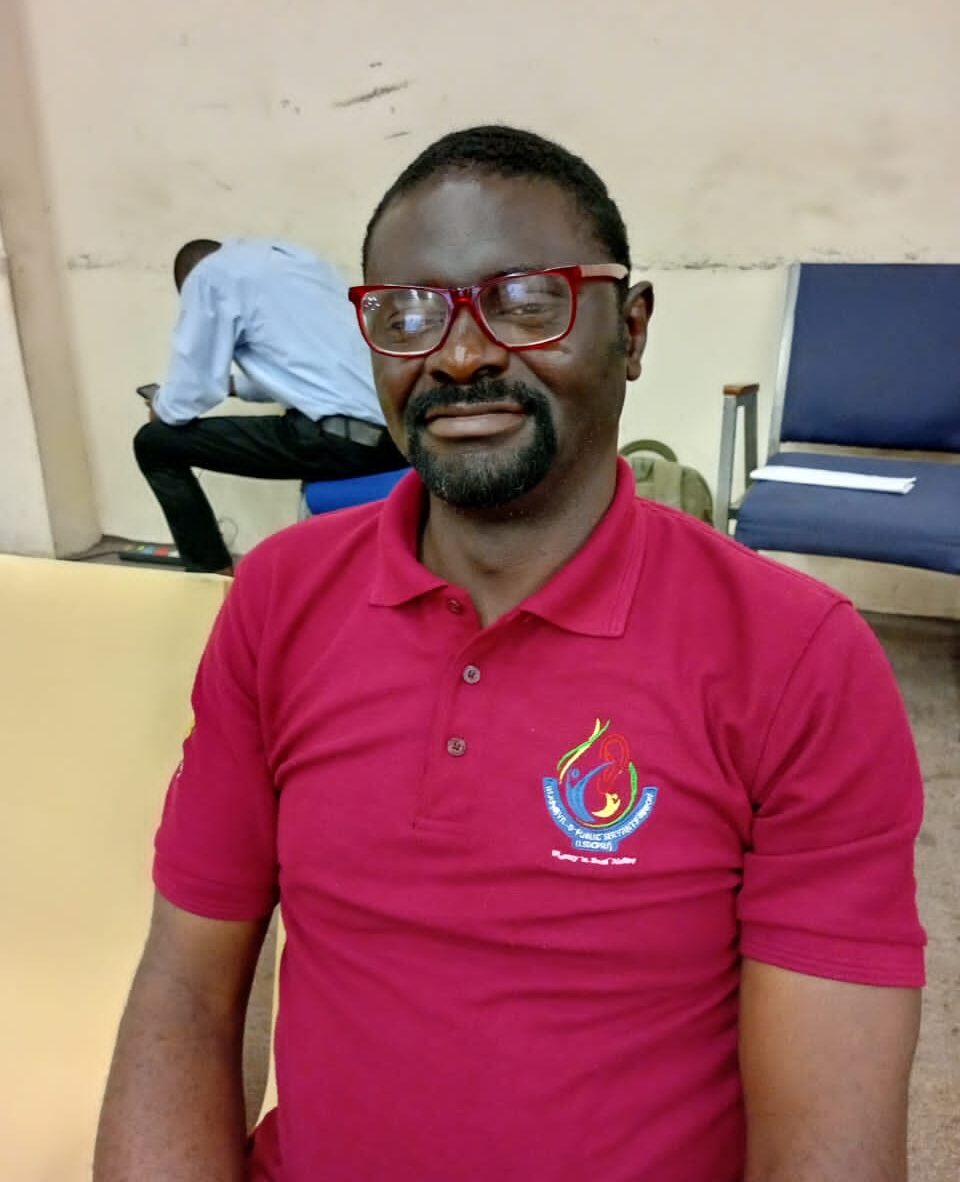
From Isolation to Advocacy
Nigeria’s DeafBlind community has long lacked recognition, but the launch of the Deaf-Blind Inclusive and Advocacy Network marks a turning point. Led by activist Solomon Okelola, the group seeks to address communication barriers and a lack of support. Among those affected is John Shodiya, who once thrived in the Deaf community but struggled with belonging after losing his sight.
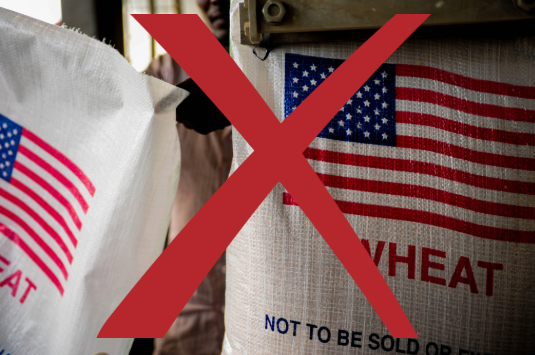
Disability Aid Disrupted
The Trump administration’s 90-day pause on USAID funding has had far-reaching consequences, particularly for disabled people and organizations worldwide, including members of the Disability Justice Project (DJP) community. Activists from Nigeria, the Democratic Republic of Congo, and Rwanda report severe disruptions, deepening challenges for marginalized communities, especially disabled people facing conflict, poverty, and structural discrimination.
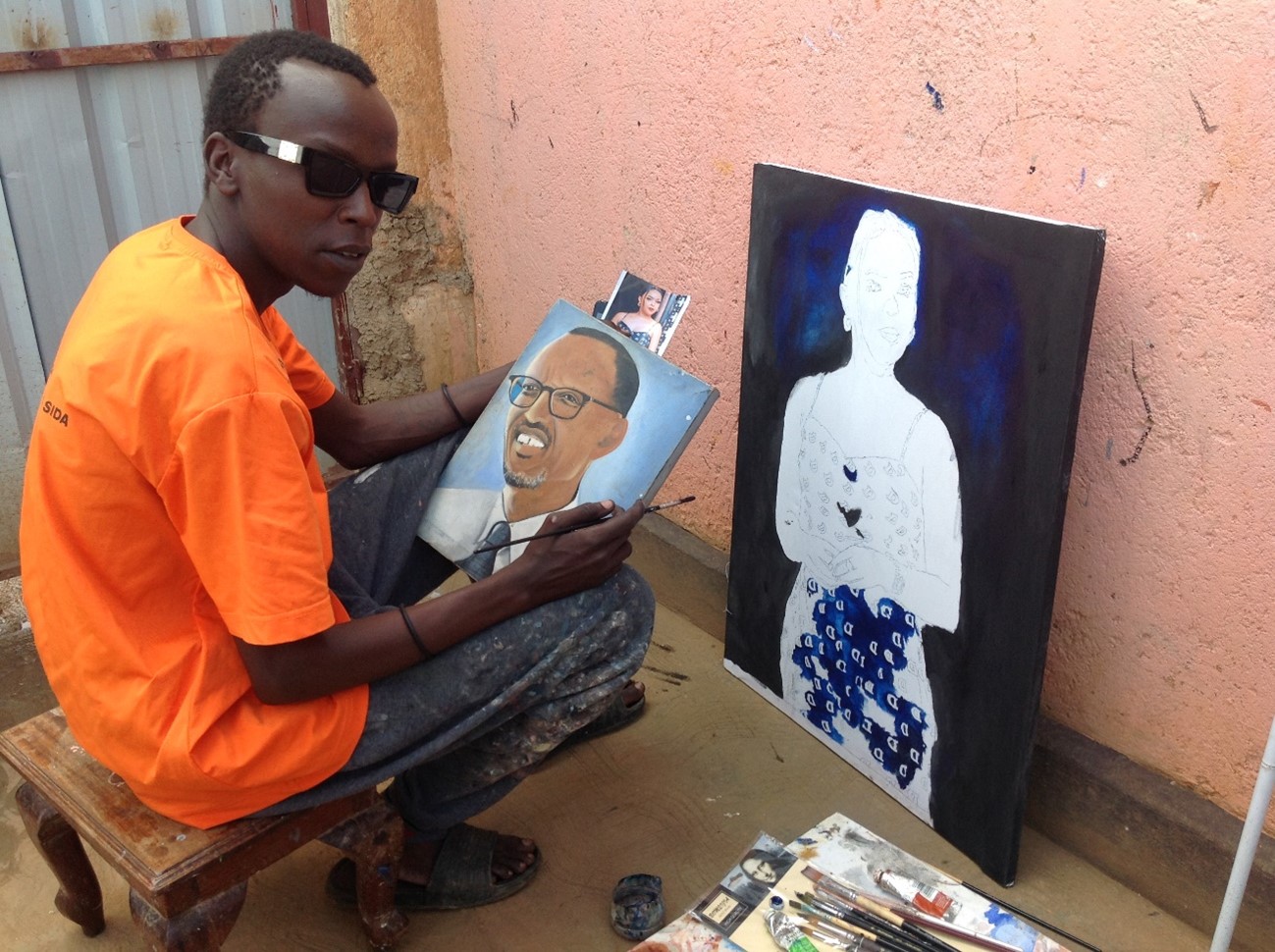
A Life’s Work
After losing his sight, artist Jean de Dieu Uwikunda found new ways to create, using a flashlight at night to outline objects and distinguishing colors by their scents. His story, along with that of DeafBlind sports coach Jean Marie Furaha, is rare in Rwanda. While over 446,000 Rwandans have disabilities, a 2019 study found that only 52 percent of working-age disabled adults were employed, compared to 71 percent of their non-disabled counterparts.
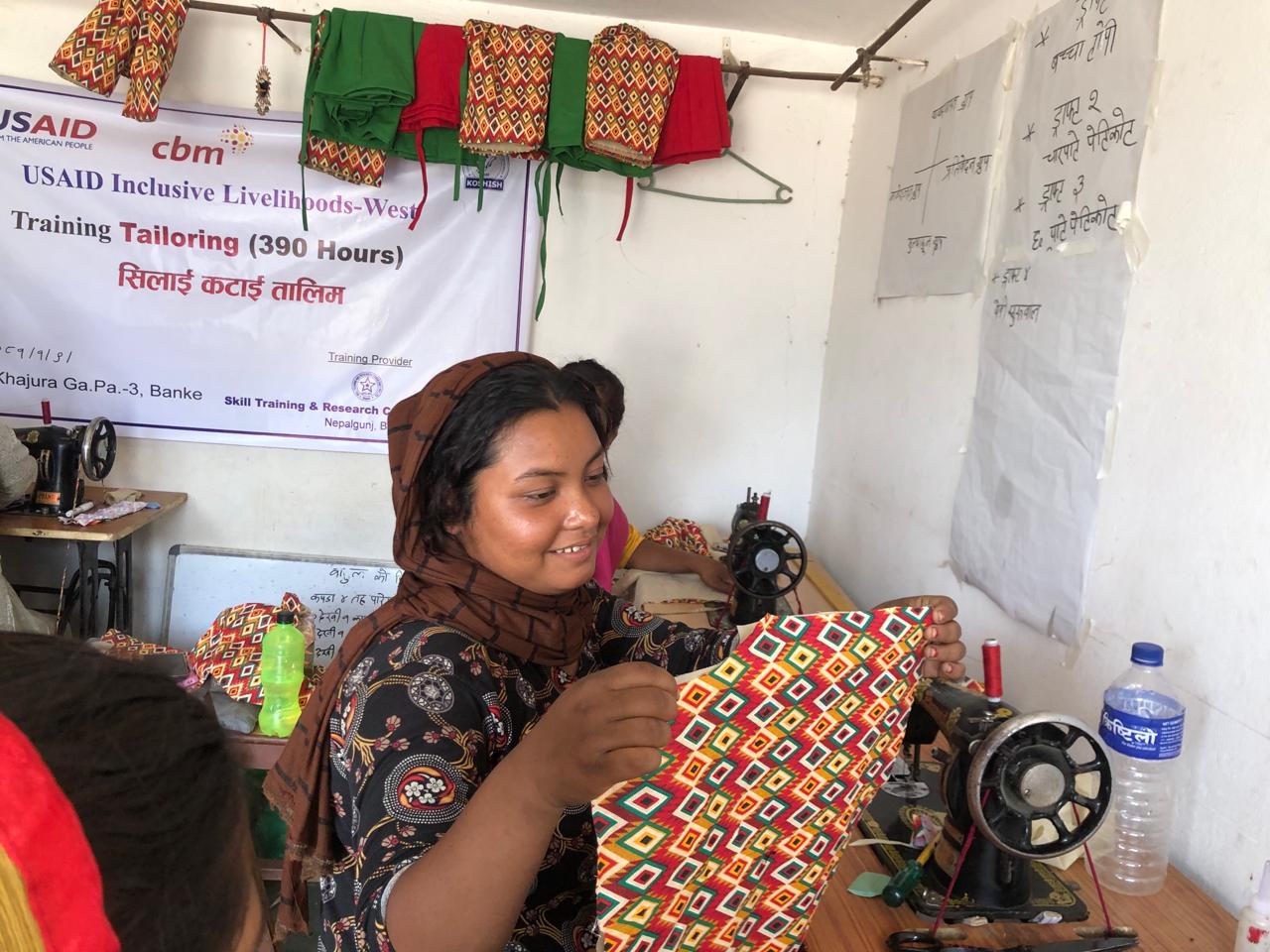
‘I Won’t Give Up My Rights Anymore’
After a life-altering accident, Lakshmi Lohar struggled with fear and stigma in her rural Nepalese community. In 2023, she found a lifeline through KOSHISH National Mental Health Self-Help Organization, which helped her develop social connections and access vocational training in tailoring. Today, Lakshmi is reclaiming her independence and shaping a future beyond the limitations once placed on her. “I won’t give up my rights anymore,” she says, “just like I learned in the meetings.”

Rwanda’s Marburg Crisis
As Rwanda confronts its first-ever Marburg virus outbreak, people with disabilities face heightened risks — not only from the virus but also from the lack of accessible health information. “Without proper accommodations, such as sign language interpreters, captions, Braille, or visual aids, the Deaf and DeafBlind community may miss crucial information about how to protect themselves, symptoms to watch for, or where to seek help in case of infection,” says Joseph Musabyimana, executive director of the Rwanda Organization of Persons with Deaf Blindness.
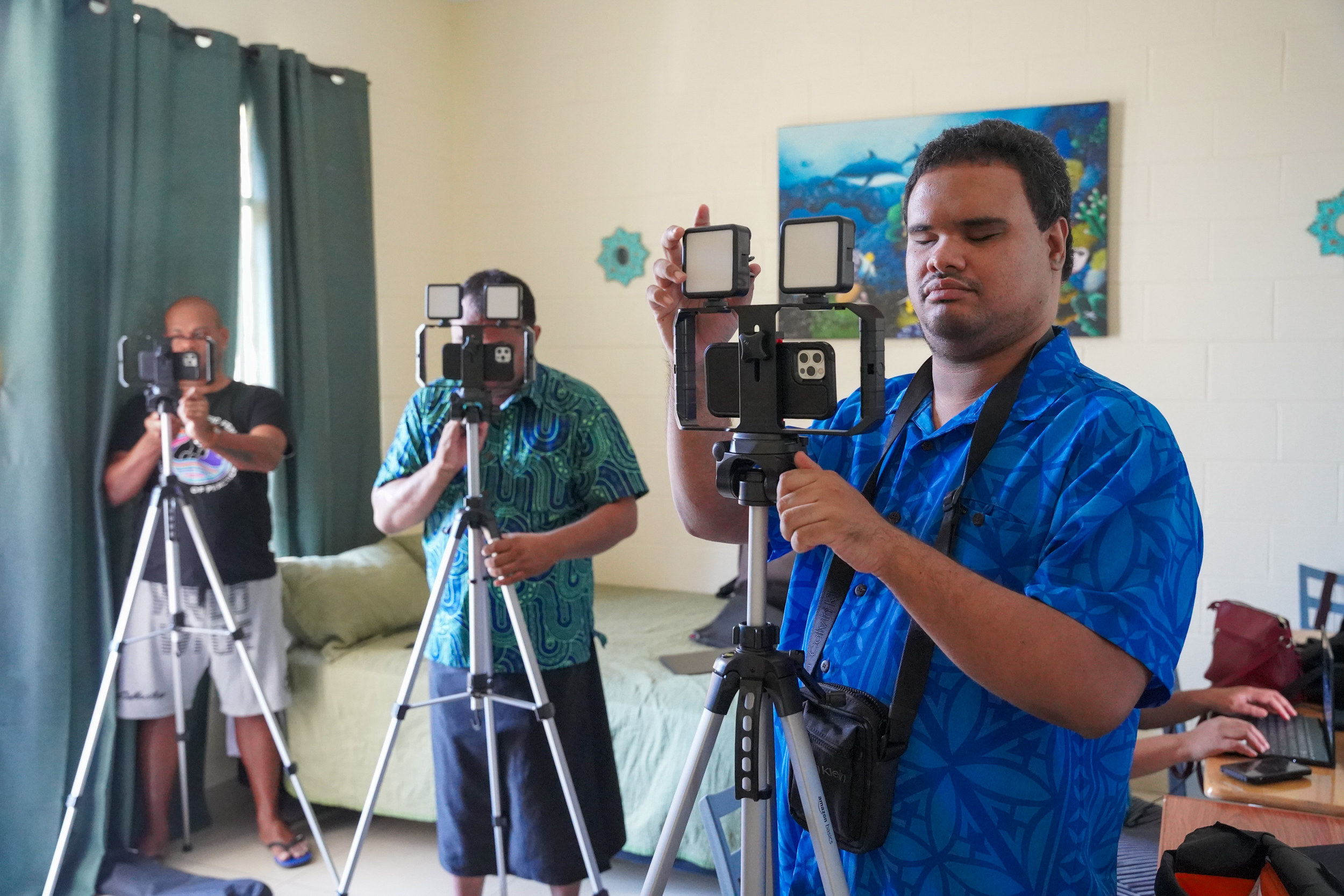
Capturing Vision Through Sound and Touch
Last year, the DJP trained Indigenous activists with disabilities from the Pacific on the iPhone camera to create a documentary series on disability and climate change. With VoiceOver, the iPhone provides image descriptions for blind and low-vision filmmakers and offers other accessible features. “If you think about it, it doesn’t make sense for a blind person to use a camera,” says DJP filmmaker Ari Hazelman. “The iPhone gives you more avenues to tell your story in a more profound way as a blind person.”